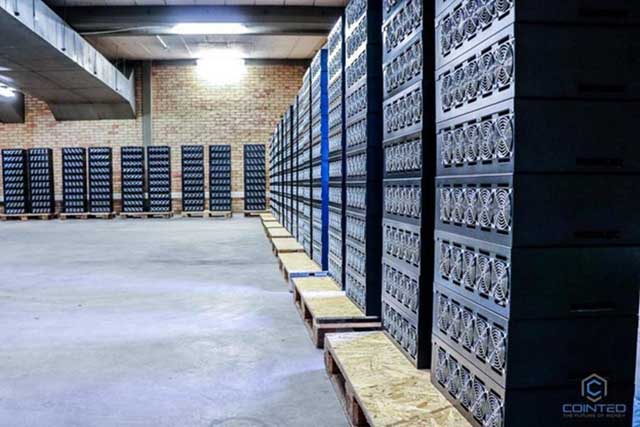
Earlier this week, a study published by Dutch researcher Alex de Vries concluded that Bitcoin mining uses almost as much electricity as the entire Republic of Ireland — but should we really be concerned?
‘Picked out of Thin Air’
Bitcoin mining is undoubtedly an energy-intensive process, as anyone who’s ever mined the most valuable cryptocurrency by market capitalization from home knows — but it might not be as concerning as many experts would lead you to believe.
Jonathan Koomey, a Standford lecturer who correctly illustrated how concerns over the early internet’s energy usage were dramatically unfounded, thinks researchers like de Vries are getting it wrong. Koomey told NBC News:
For two decades, people have been eager to overestimate electricity use by computing. My concern is that we simply don’t have adequate data to come to the strong conclusions that he’s coming to.
De Vries’ conclusions in question estimate that the Bitcoin network consumes “at least 2.55 gigawatts of electricity currently, and potentially 7.67 gigawatts in the future.” Furthermore, the researcher claims:
Economic models tell us that Bitcoin’s electricity consumption will gravitate toward the latter number. A look at Bitcoin miner production estimates suggests that this number could already be reached in 2018.
However, according to experts such as Koomey, de Vries’ and others’ underlying assumptions are problematic — particularly in regards to the manner in which they calculate the value of energy and the price paid for said energy. Explained Koomey:
The worry is that those are two numbers that are picked out of the air. There may be some basis for them, but it’s a very unreliable way to do these kinds of calculations, and nobody who does this for a living would do it like that. It’s odd that someone would.

Bitcoin mining is a notoriously private enterprise, with a lot of current and future mining operations taking place in remote areas. As such, it’s not exactly cut and dry how much miners pay for energy, especially considering many operations are set up specifically to reduce said costs — such as mining in caves, energy-rich areas, or low-cost countries.
De Vries research also neglects to consider how miners often use special mining equipment crafted specifically to maximize efficiency. Christian Catalini, an assistant professor at MIT’s Sloan School of Management who researches cryptocurrencies and blockchain technology, told NBC News:
The only people with good data on this are the miners, so you do need that data to understand the electricity consumption. The main challenge is that this gear is scattered across the globe and faces different prices.
Koomey added:
The equipment they’re using is customized to their use. This is not the standard servers that are being sold. These are machines that are assembled using other components. That makes it more difficult. It’s a custom design and those kind of servers are not tracked as well.
We should try to get the numbers right […]
So, what are the correct numbers? According to Jan Čapek, CEO and co-founder of Braiins Systems and operator of massive Bitcoin mining pool Slush Pool, his company uses a lot less energy than critics imply — and turns a pretty penny in the process.
Notes Čapek, the total cost, at current difficulty, to mine one bitcoin comes to less than $1937 using recent HW @ 5c/kWh, which is far less energy consumed than most naysayers would like you to believe.
Let’s have some numbers for todays panel in NYC. I have updated the “1 BTC mining cost estimates and total network power gists” with current difficulty. It comes to less than USD 1937 for 1 BTC using some recent HW @ 5c/kWh https://t.co/ykBj4wNPgq
— Jan Čapek (@janbraiins) May 18, 2018
It’s worth noting that even de Vries himself admits the flaws in his research’s design. The researcher stated:
We’ve seen a lot of back-of-the-envelope calculations, but we need more scientific discussion on where this network is headed. Right now, the information available is pretty poor quality overall, so I’m hoping that people will use this paper as a foundation for more research.
Do you think the energy costs associated with global Bitcoin mining are overblown? Be sure to let us know in the comments below!
Images courtesy of Shutterstock, Bitcoinist archives, and Twitter/@janbraiins.
The post Bitcoin Mining Isn’t As Energy-Consumptive As Researchers Claim appeared first on Bitcoinist.com.

Bitcoinist.com is author of this content, TheBitcoinNews.com is is not responsible for the content of external sites.
Our Social Networks: Facebook Instagram Pinterest Reddit Telegram Twitter Youtube










